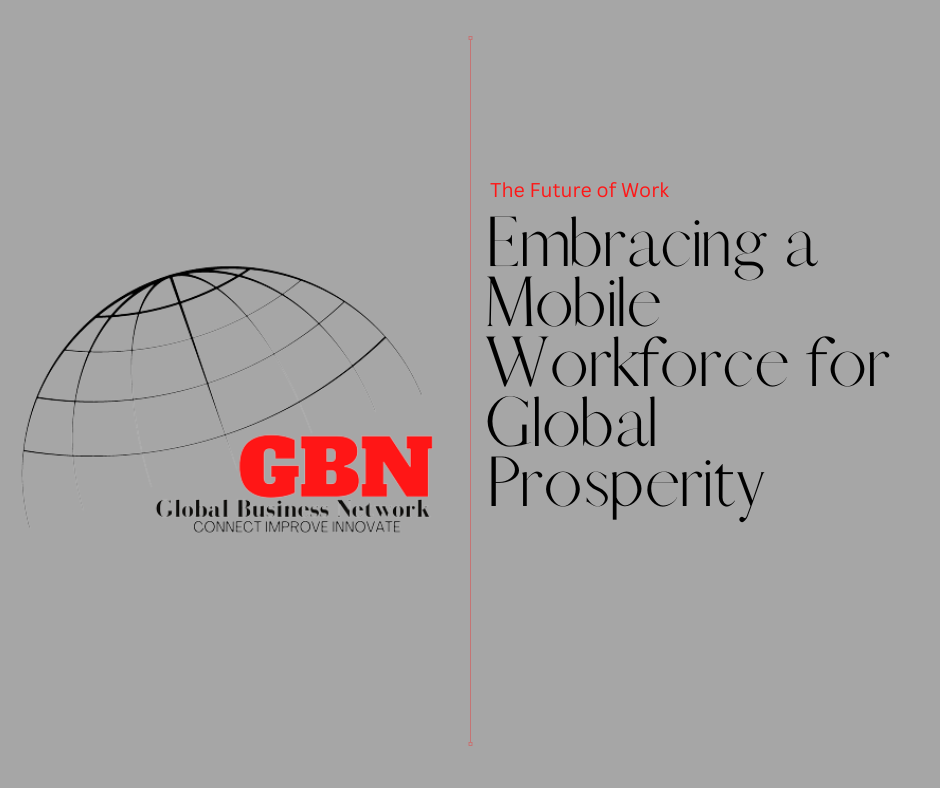In an increasingly interconnected world, the notion of a mobile workforce is rapidly gaining traction. As technology transcends geographical boundaries, the idea of working remotely from anywhere across the globe is becoming a reality. This phenomenon not only presents numerous opportunities for economic growth but also fosters the global development and sharing of skills. In this article, we explore the significance of a mobile workforce and advocate for the G20 to take the lead in spearheading this transformative shift, as proposed by Dr. Bilal Ahmad Bhat, the visionary founder of BAB Group of Companies.
The Emergence of a Mobile Workforce
The concept of a mobile workforce revolves around the ability of individuals to work remotely, unbound by traditional office settings. Enabled by the proliferation of high-speed internet, cloud computing, and advanced communication tools, this phenomenon has become increasingly prevalent across various industries and professions. With the ongoing global digital transformation, the mobile workforce is poised to become an integral part of the future of work.
Globalizing Skill Development and Sharing
As the world becomes more interconnected, the demand for diverse skills transcends borders. By embracing a mobile workforce, businesses and organizations can access talent from around the globe, regardless of physical location. This globalizing of skill development and sharing fosters a rich exchange of ideas, expertise, and perspectives, leading to enhanced creativity, innovation, and problem-solving.
The Role of G20 in Shaping the Future of Work
The Group of Twenty (G20), an international forum of major economies, plays a pivotal role in shaping global economic policies. As the future of work evolves with the advent of the mobile workforce, it is crucial for the G20 to take a leading role in recognizing and harnessing its potential. Dr. Bilal Ahmad Bhat, the visionary founder of BAB Group Of Companies, emphasizes the need for the G20 to advocate for policies that facilitate the mobility of talent and skills across borders, thereby driving economic growth and global collaboration.
Promoting Inclusive Economic Growth
One of the primary advantages of a mobile workforce is its potential to promote inclusive economic growth. By enabling individuals from diverse backgrounds and regions to participate in the global job market, this approach empowers marginalized communities, narrowing economic disparities. Additionally, the mobility of talent encourages entrepreneurship, as individuals can collaborate and contribute their expertise to various projects worldwide.
Challenges and Solutions
While the concept of a mobile workforce is promising, it also presents challenges that need to be addressed. Issues such as data security, taxation, and legal implications require international cooperation and standardization. The G20 can play a critical role in fostering dialogues to find innovative solutions and establish frameworks that facilitate the smooth functioning of a mobile workforce.
Embracing Technological Advancements
For the mobile workforce to thrive, technological advancements are paramount. Governments, businesses, and institutions must invest in digital infrastructure and skill development to equip individuals with the necessary tools to succeed in a remote work environment. The G20 can advocate for policies that promote digital literacy and bridge the digital divide, ensuring that all members of society can benefit from the opportunities created by a mobile workforce.
The rise of the mobile workforce represents a transformative shift in the global job market. Embracing this phenomenon has the potential to foster global skill development, inclusive economic growth, and cross-border collaboration. As Dr. Bilal Ahmad Bhat, the founder of BAB Group Of Companies, rightly suggests, the G20 must take a leading role in advocating for policies that facilitate the mobility of talent and skills, ensuring a prosperous future where the world’s best minds can come together to drive innovation and progress. With collective efforts and strategic planning, we can harness the power of the mobile workforce to create a truly interconnected and thriving global economy.




